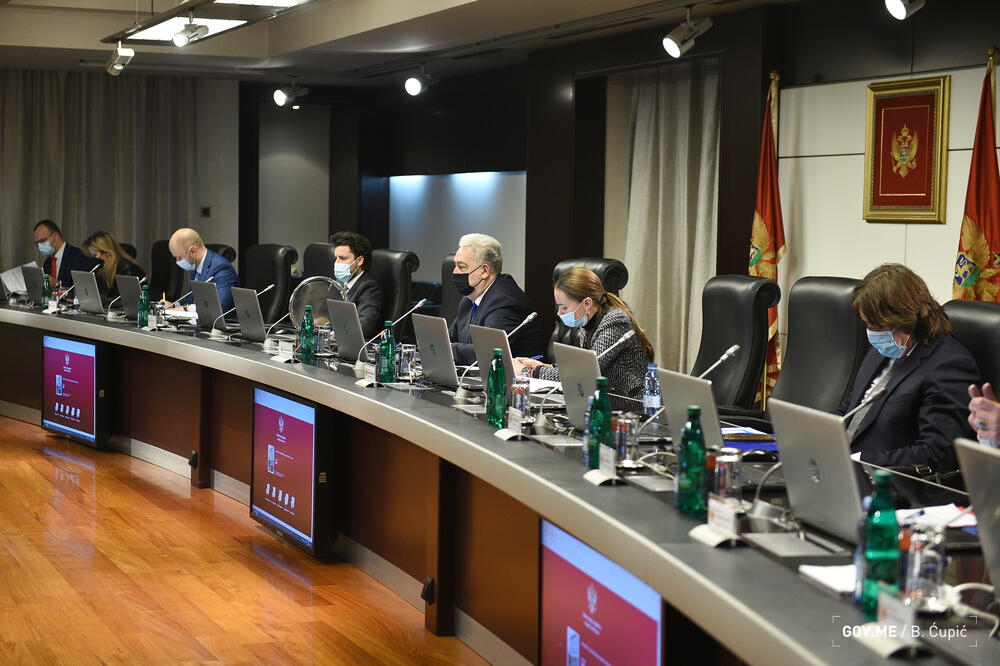At the end of December last year, the Government of Zdravko Krivokapić extended the level of secrecy “confidential” for another five years for audio recordings from the Government sessions.
This is stated in the response of the authorized person of the Secretariat-General of the Government, Nikola Kandić, to the request of the Network for Affirmation of NGO Sector (MANS), which requested the minutes and audio recording from the 51st session. At that session, among other things, the concession for the Platac quarry was discussed.
“The request for access to information is partially adopted, thus, access to a copy of the minutes from the 51st session of the Government, held on December 16, 2021, is allowed. A part of the request for access to information of the Network for Affirmation of NGO Sector No. 138746, requesting the delivery of the audio recording from the 51st session of the Government held on January 16, 2021, is rejected”, the letter signed by Kandić reads.
The explanation of the decision states that the Government declared internal the part of the minutes that refers to three items marked with the degree of secrecy internal.
When it comes to audio recording, Kandić points out that, in accordance with the Law on Classified Information, that information has been marked with the degree of secrecy internal since January 30, 2012.
According to Kandić, at the end of December 2016, the government of Duško Marković changed the degreeof secrecy of audio recordings of the sessions from “internal” to “confidential”.
”According to the Decision of the Prime Minister No. 08-3297/2 of 29.12.2016, the degree of secrecy of audio recordings from the Government sessions was changed from ‘internal’ to ‘confidential’. According to the decision of the Prime Minister 01-6391 from 27.12.2021, the secrecy period of audio recordings of the Government sessions which are according to the decision number 08-3297/2 from 29.12.2016 marked with the degree of secrecy ‘confidential’, has been extended by five years”, Kandić’s explanation reads.
He refers to the “harm test” conducted at the end of 2016.
”After the harm test was conducted on December 28, 2016, this body concluded that the availability of minutes on the debate from the Government sessions would have detrimental consequences for the foreign, monetary and economic policy of Montenegro, because the discussion and exchange of views to determine the views do not contain data that constitute prevailing public interest in publishing information or part thereof under the law on free access to information. The audio recording does not produce legal and other actions against citizens as in the case of documents, which, except for those marked with a degree of secrecy, are publicly published. Thus, restricting access to audio recordings from the Government session does not affect the exercise of the public’s right under the Law on Free Access to Information to know the data it needs in exercising democratic control over the work of the Government”, Kandić explained.
The director of the MANS Investigative Centre, Dejan Milovac, says that this is “unfortunately yet another proof of how unprepared and incapable the outgoing government has been to deviate from the practice of withholding information inherited from the Democratic Party of Socialists (DPS) for 30 years.”
“The data obtained by MANS show that at the end of last year, Prime Minister Zdravko Krivokapić extended the validity of the decision of his predecessor Duško Marković to mark the audio minutes from the Government sessions as confidential. MANS received this answer for the session at which the decision on announcing a public call for a concession for the quarry “Platac” for a period of 30 years was discussed and finally adopted, which was awarded to a company owned by the family of Budva Mayor, Marko Bato Carević. Thus, despite the promises, the practice of non-transparency has continued, which is especially problematic in cases when decisions are made regarding the disposal of state property for a longer period of time, such as those on concessions.”
Source: Vijesti




